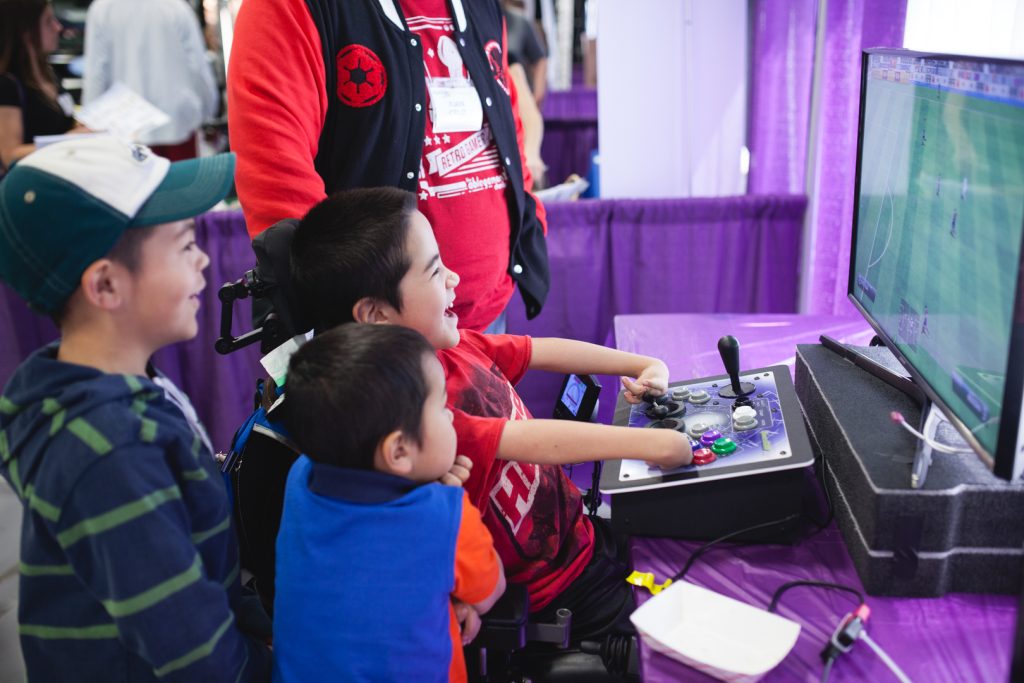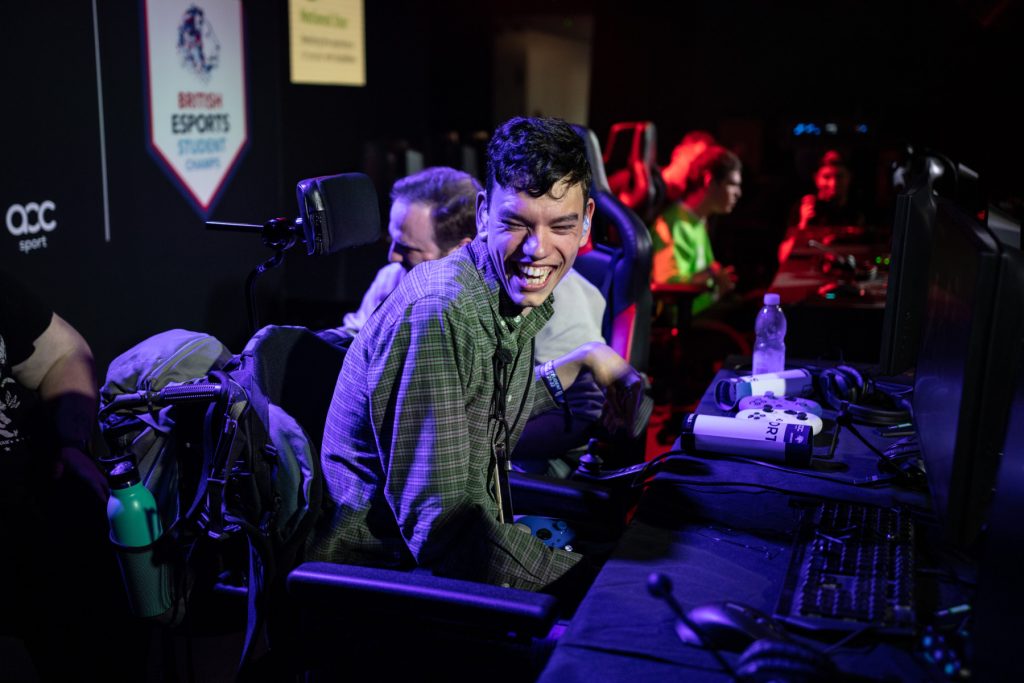
As a deaf person, I play competitive games a little oddly.
Particularly in VALORANT, where sound is essential, I rely on dead teammates to call out positions for me in clutches, and to help me by warning me about pushes or identifying other sounds. Some games, like Overwatch, also have a neat subtitle feature that identifies all the sound cues for you.
As modern titles, both VALORANT and Overwatch have benefitted from a litany of helpful disability options that have made competitive gaming more accessible, but there’s still plenty of work to do to ensure people in the disabled community have the same access to competitive gaming as their able-bodied peers.
The issue is especially stark in the upper echelons of esports, where many alternative inputs or display options that allow disabled players to compete are banned outright. Nonetheless, even more casual competition can have a positive influence on disabled people who struggle to participate in other activities. A report by the British Paralympics recently found that disabled people were twice as likely to struggle to access inclusive activities near them.

Start disability support early
Zack Fabi, Co-Founder and CEO of Vanta Esports, can’t exactly remember how his company’s relationship with a specialist disabled school emerged. Vanta, which typically runs scholastic tournaments across the US, agreed to a six-week trial of a coaching programme at the school to understand if the company could support disabled youth. “From our perspective, it really wasn’t all that different from working with normal kids.” Fabi explained.
“Kids range with a wide level of maturities and emotional responses to things, whether they’re neurodiverse or not. Our coaches had no major issues that came out of it really, in terms of having to adjust their teaching approach.” The biggest challenge, it turned out, was getting Rocket League to work through Stadia on the school’s geriatric Chromebooks.
Fabi talked fondly about hearing great feedback from children developing their skills in games. “I think the biggest lesson for us was just how eager the kids are to be engaged in this way, and to have a place to follow their passions and participate. The lesson for us is that it was relatively easy for us to give them that place to belong.”
The need to get children with disabilities involved in esports is arguably more pertinent than with neurotypical counterparts. Himself a college sports athlete, Fabi admitted that “not all kids are interested in sports nowadays” and ensuring that children develop skills through esports is an excellent alternative to traditional sporting competition, to which even ‘normal’ adults and children can relate.

True inclusion
When disabled scholastic esports players enter college, and then the wider industry, there are further barriers. VALORANT, for example, does not completely support trackpad input, which has spelled disaster for some disabled gamers who rely on those inputs for their accessibility modifications to function.
Rowan Crowthers, an Australian Paralympic world champion, former esports semi-professional player and disabled Twitch influencer says that while esports theoretically ensures that disabled people can “compete on the same level,” there are barriers that aren’t immediately obvious. The fine mouse control required to learn spray control in CS:GO is hard for him, so he remembers diligently swapping his main gun to the SG 553, a gun with an easier spray pattern.
He also praises VALORANT’s clean art style compared to CS:GO. “You look at a smoke grenade in Counter Strike versus a smoke in VALORANT. In Counter Strike, you’ve got like blurred edges and bits that fade in and out on the sides, and you don’t know if something’s a ‘one way’ or not. Whereas in VALORANT, it’s just a clean edge and a clean line.” VALORANT also has deep colour customisation features that are used by colour-blind gamers to suit their condition.
The point from each of these examples, Crowthers claims, is simple. “As a result of Riot’s changes, everyone is having a better experience using in-game features that will allow them to play or just to be faster at picking apart different objects on the screen. So it’s just kind of ringing true to that thing where they say ‘when you consider accessibility, then everyone wins’.”
Despite being a Paralympic gold medalist, Crowthers never got to play in a competitive team sport. Esports offers him that chance, but there are still issues for him online. He used to keep a wall on his Steam profile of all the ableist bile directed at him by members of the community, and he is exhausted by ongoing controversies about alternative control schemes.
Steve Spohn, Senior Director of AbleGamers, remembers defending a system called an XIM that allows players to compete with mouse and keyboard in a games console lobby. “My argument against people criticising this was “in your scenarios, you as an able-bodied person can pick up a controller or you can also get a zoom and you can also play on a keyboard and a mouse. I cannot pick up a controller.” By removing barriers to competition, Spohn proposed that all players will benefit from different options to play.
Spohn continues: “We’re talking about real lives here. If you’re someone who is bed-bound, who does not have the opportunity to go out into the real world, to have a job in esports that isn’t a 9-5; what a dream, right?”
It’s high time for the industry to recognise and embrace the undeniable potential of disabled gamers as fans and players, disability advocates argue. As Vanta’s earlier insights contend, inclusion is not just a moral imperative but a strategic one, too, for esports to thrive in the long run.
In a follow-up article to be published soon, we’ll delve deeper into the innovative approaches and complex challenges faced by tournament organisers in creating more equitable and accessible opportunities for disabled players to shine.




